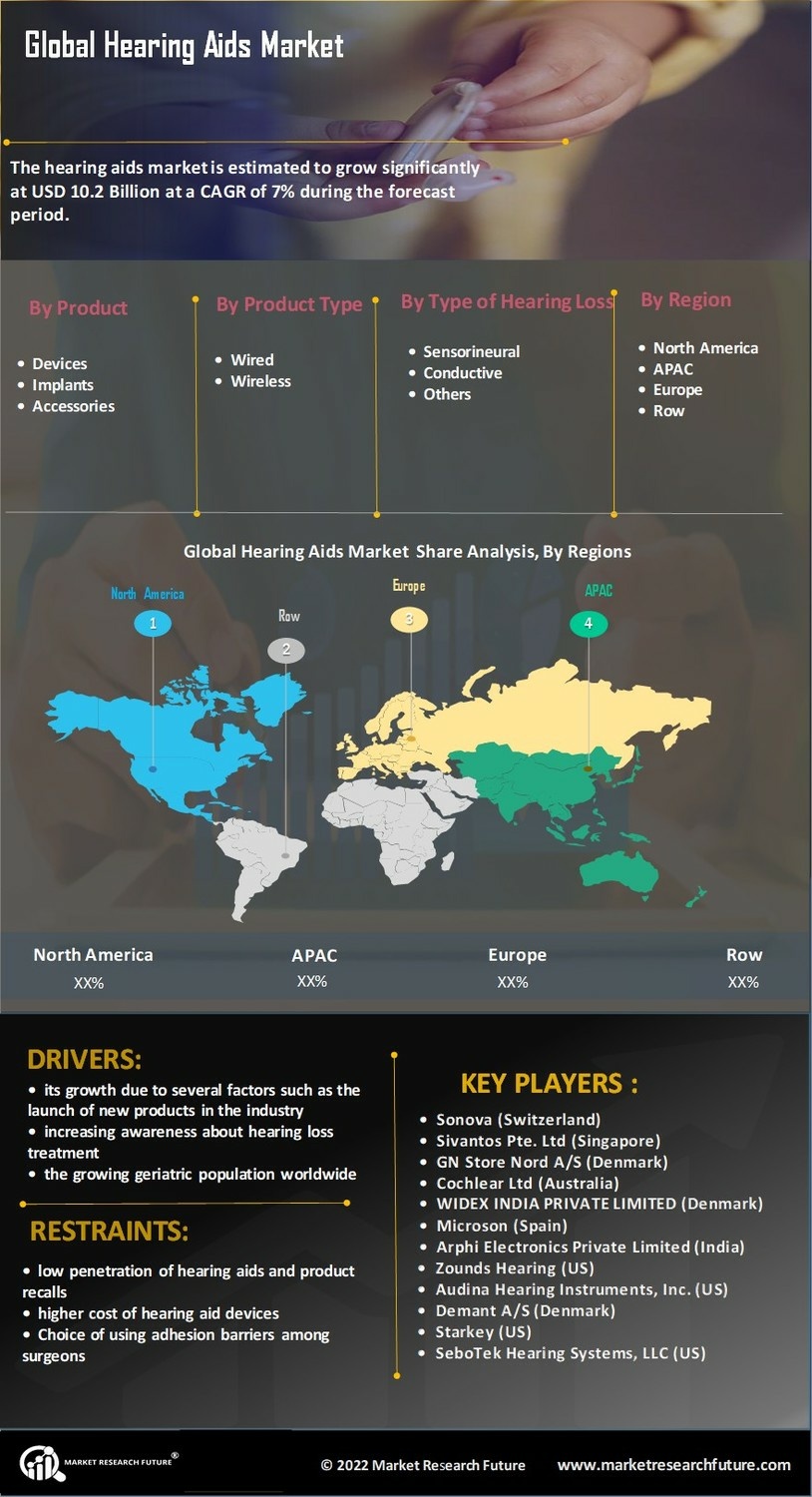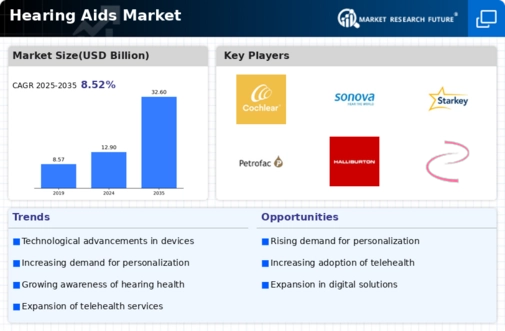Research Methodology on Hearing Aids Market
Introduction
Market Research Future’s (MRFR) research report on the Global Hearing Aids Market provides a comprehensive and in-depth analysis of the hearing aids market. The report features an all-encompassing overview of the market, alongside key insights and dynamics at play in the market. Primary, secondary and tertiary research techniques have been employed to compile and validate the report. The team of researchers at MRFR leverages industry-specific and comprehensive data obtained from credible sources, such as external & internal databases, industry participants’ press releases and presentations, monthly journals, and industry associations to provide an accurate and verifiable analysis of the hearing aids market.
Research Design
This research report is an outcome of exhaustive primary & secondary research, and analysis of industry trends. The primary research process included interactions with governmental organizations, manufacturers, distributors and associations. Through these interactions, MRFR gathered intelligence about the hearing aids market dynamics, pricing and revenue. Subsequently, depth interviews are conducted with industry professionals and stakeholders such as healthcare specialists, major suppliers and distributors, to validate the facts and figures obtained through the primary research. Additional sources of data scrutiny include company websites, company annual reports, and a worldwide database of journals, newspapers and market whitepapers.
Market and Forecast Modelling
The market forecasting activity began with assessing current and past market performance and then based on existing and potential market scenarios, the market is valued for the period 2023-2030. For this purpose, the market is split into many sub-segments. The average and gross revenues from each sub-segment are also calculated and extrapolated as a part of our analysis.
Market Segmentation
The global hearing aids market is segmented based on product type, price range, end-user, and global regions.
- By product type, the market is segmented into behind-the-ear, in-the-ear, body-worn, implantable hearing aids, and others. The behind-the-ear segment is estimated to account for the largest share of the market, followed by the in-the-ear segment.
- By price range type, the market is segmented into low, medium and premium hearing aids.
- By end-user, the market is segmented into hospitals, clinics & diagnostic centres, retail pharmacies and online stores.
- By regional analysis, the global hearing aids market is segmented into North America, Europe, Asia-Pacific and the Rest of the World (RoW).
Data Collection and Base Year Analysis
MRFR collected data from secondary and primary sources at the regional and global levels. Macroeconomic data is collected to provide an accurate representation of the market size for the base year of 2022.
Market Size Estimation
The estimated market size is calculated using the two-step approach and the data triangulation technique. Different bottoms and top-down approaches are used to obtain the exact market size. The top-down approach is used to estimate the size of the different sub-segments and the corresponding revenue. Whereas, the bottom-up approach assisted in deducing the global market size. The data obtained from these approaches is cross-validated through third parties to verify the market estimations.
Assumptions
- The global hearing aid market size valued in 2022 is considered as the base year according to new developments and trends over the forecast period
- The market is segmented by product type, price range, end-user, and global regions
- Market estimates and trends in the report are analyzed from 2023 till 2030
- Market share of different sub-segments is considered based on their market size, price, and recent developments
- Global market scenarios are identified and analysed with key market variables
- Both top-down and bottom-up approaches are used to estimate the size of the global sub-segments and the corresponding revenue
- Market estimation and forecasting are done by extensively pondering upon existing market trends and potential developments over the forecast period
- Inflation rates and macro-economic factors are considered in calculating the size of the global hearing aids market
- Market dynamics such as drivers, restraints, opportunities, and challenges are studied in detail and their impacts on the global hearing aids market have been estimated
- Market dynamics, such as Mergers & Acquisitions, are analysed for the corresponding effect on the market.
Conclusion
This report on the hearing aids market provides an accurate and verifiable analysis of the market, based on facts and verified figures derived from both primary and secondary sources. The findings of this report are based on the team of researchers’ extensive research and extensive interviews conducted with industry professionals.

















